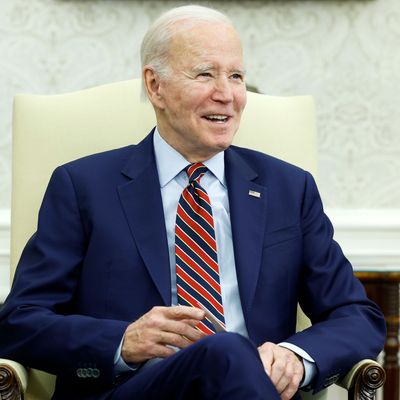
Experts from across the political and ideological spectrum agree that the consequences of a U.S. debt default would range from deeply alarming to catastrophic. Congress must reach a deal to raise the debt ceiling in the next few weeks to avoid this fate. But is the public worried? Apparently not. NBC News reports in a piece entitled “As Debt Default Looms, America Yawns:”
Default has never happened before and could push the U.S. and global economy into harrowing territory, economists say. But for many Americans, that scenario remains an abstraction far removed from day-to-day concerns. And there are signs that a crisis-weary population wants to sit this one out.
A recent focus group convened by the research firm Engagious asked 11 Georgia voters who backed President Joe Biden in 2020 if they worried that the government would blow through a looming deadline and default on its debt. Not one hand went up. Corporate America has largely sidestepped the contentious debate unfolding in Washington.
Until fairly recently, debt-limit increases were typically the subject of quiet behind-the-scenes bipartisan maneuvering, much of it designed to keep members of Congress from having to vote for a higher debt ceiling. But in the 21st century and particularly the last 12 years, dealing with this issue has routinely become a crisis in which the two parties have sought to engage the public. That’s particularly been true in periods of divided control of the federal government, when the responsibility of accommodating past debt is borne by the party controlling the White House and members of the opposing party sit on their hands at best and engage in hostage-taking and sabotage at worst.
In the closest brush with disaster ever, in 2011, Republicans controlled the House and Democrats held the White House and the Senate in a year just prior to the Democratic president’s reelection bid. That’s precisely the situation today. And the underlying problem is that the public doesn’t really understand the debt limit and dislikes increasing it, which gives the party fighting an increase — Republicans in 2011 and 2023 — more leverage than they otherwise might have.
As an abstract matter, debt-limit increases have always been unpopular, mostly because the public thinks of them as designed to accommodate future deficit spending — also unpopular in the abstract, though not as unpopular as concrete measures to end deficits — rather than the servicing of existing debt. But aside from that pervasive source of confusion, invariably promoted by debt-limit-increase opponents, the public really just isn’t clear about this relatively complex topic. As the 2011 debt crisis was building that summer, Gallup found that only 22 percent of Americans favored increasing the limit, while 42 percent opposed it, and 35 percent of respondents said they didn’t know enough about the subject to make a judgment.
So now, as back then, proponents of a debt-limit increase need to explain to the public what the measure does and doesn’t represent, and what the consequences could be if it fails. Polling that links the debt limit to a potential default on the nation’s obligations tends to produce clearer and more positive results, as a recent CBS/YouGov survey showed:
When initially asked about raising the debt ceiling — defined as the limit on what the government can borrow to pay its current debts — a narrow majority oppose raising that limit. This is driven by Republicans and independents, including both self-described moderates and conservatives.
But when asked what they would support if the U.S. would end up defaulting on its current debt, many change their mind. In this case, seven in 10 Americans favor raising the ceiling to let the U.S. pay its debts.
Actual majorities of Republicans, then, disagree with Donald Trump’s recent assertion that a debt default would be preferable to abandonment of the deep spending cuts the House GOP has demanded. But for Democrats, exploiting this gap between Republican politicians and the party rank and file means convincing the public that default is a real possibility that could cause a market crash, skyrocketing interest rates, and a big spike in unemployment.
It may seem counterintuitive for Mr. Normalcy, Joe Biden, to abandon his usual low-profile projection of a leader who is quietly in command of a troubled and divided country. But at the moment, his primary opponent, House Speaker Kevin McCarthy, is being held hostage by his party’s most irresponsible elements, and most Americans believe it’s all a partisan game that will be resolved before any damage is done. Paradoxically, that may not happen at all until the public panics and the game is called off.
More on politics
- Everyone Biden Has Granted Presidential Pardons and Commutations
- Trump Is Threatening to Invade Panama, Take Back Canal
- What Happened to Texas Congresswoman Kay Granger?






























